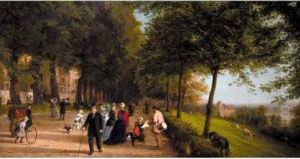Alfred Mudge Paintings
Alfred Mudge was not primarily known as an artist but rather as an influential figure in the printing and publishing industry during the 19th century in America. Born in 1815, Mudge's career did not follow the conventional path of a visual artist, which might involve painting, sculpture, or other traditional artistic media. Instead, his contributions were in the realm of printing and publishing, an area that was crucial for the dissemination of art and literature during his time.
Mudge began his career in Boston, Massachusetts, a hub for American publishing in the 19th century. He founded Alfred Mudge & Son, a printing company known for its high-quality work and innovative techniques. This business played a significant role in the Boston area, providing printing services for a variety of clients, including authors, businesses, and even art institutions. Through his work, Mudge indirectly influenced the art world by facilitating the production and distribution of art catalogs, books, and other printed materials that featured artworks, thus helping to promote artists and their works to wider audiences.
Despite the lack of direct involvement in creating visual art, Mudge's impact on the art community and the broader cultural landscape should not be underestimated. His advancements in printing technology and commitment to quality helped elevate the standards of printed materials, making art more accessible to the public and aiding in the cultural education of the American populace. Alfred Mudge passed away in 1890, leaving behind a legacy as a pioneer in the printing industry, whose work helped shape the way art was shared and appreciated during his era and beyond.

